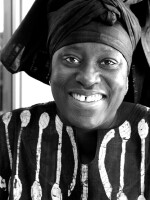DEBBIE ELLIOTT, host:
This is ALL THINGS CONSIDERED from NPR News. I'm Debbie Elliott.
Over the last week, violent protests and a general strike have rocked the West African nation of Guinea. The president has declared a state of emergency and the authorities have arrested hundreds of citizens. The unrest in this impoverished nation of 10 million has grabbed world attention, in part because Guinea is a leading exporter of bauxite, and without bauxite, none of us would have aluminum foil or other aluminum products.
NPR's Ofeibea Quist-Arcton is in the capital, Conakry. When I spoke with her earlier, she described Guinea as a country of enormous potential wealth.
OFEIBEA QUIST-ARCTON: Guinea people say it's a geological scandal. It has every mineral you can think of, from bauxite, which is used to make aluminum; it has gold, diamonds. It has all sorts of other natural resources, and of course fertile agricultural land. Everybody says the soil here, you drop a seed in it, before you have time to turn around, it's sprouting, because Guinea is so rich. And then, of course, there's tourism potential.
It's a beautiful country. And yet it's one that looks as if it's been lost in time, that there hasn't been development. So potentially, Guinea has everything to make it a very rich country, probably one of the riches in West Africa, but that's not the reality on the ground. And it's simply down at heel, ramshackle and old.
ELLIOTT: Because this country is so rich in resources, who is profiting? Who makes the money from these resources?
QUIST-ARCTON: A clique and the elite. Those who have access to power and those who do the wheeling and the dealing and the contracts, who have remained rich whilst the majority of people have remained poor. And Guinea is poor. You go to any city, any town in this country and it looks as if there has been very little development.
ELLIOTT: What would I see if I were walking around on the streets of a town in Guinea?
QUIST-ARCTON: Here, in the capital, Conakry, you would be shocked at what a rather down at mouth city it is. Guinea was a French colony, but back in 1958, when everybody in Africa was clamoring for independence, France wanted to keep control of its colonies, so agreed to partial independence but Guinea said no to General de Gaulle, and France literally jettisoned its former colony; it abandoned it. It even took, we're told, some of the plans for things like underground waterworks with it. Its independence leader was a nationalist, a pan-Africanist, Sekou Toure; he said he wanted his country to develop without the yolk of being a colony, but it looks as if having said no to France, Guinea got off to a very poor start.
ELLIOTT: Who was responsible then for what has been going on in Guinea recently?
QUIST-ARCTON: People do say that Guinea's problems started way back then. But when Sekou Toure died in the '80s, in a swanky American hospital in Cleveland, within a week Guinea was taken over by the military in a coup d'etat. And for the last 23 years, it's been under the leadership of retired General Lansana Conte, now President Lansana Conte, and he's had an iron grip on the country.
Guineans are now trying to buy a bag of rice at a huge cost, which most people can't afford. Last year, they had strikes over the cost of living, over the cost of fuel, and yet this is a country where they're exploring for crude oil and natural gas. Historians and political commentators say to you that the Guineans are poor because of poor leadership and because of poor governance.
ELLIOTT: Now, given the recent protests and the nationwide strike, what are the prospects that things could turn around, that people are demanding change?
QUIST-ARCTON: Well, it depends whether there's dialogue. Nobody has seen what has happened in Guinea over the past months and a half before, the fact that people have descended onto the streets in the tens of thousands saying no. A lot of people who I've spoken to say Guineans aren't used to saying no to their leaders. But that's what they're saying now. But they want a peaceful transition.
They wanted with dialogue, and especially they want the people who govern this country to be governing for all Guineans, not just for the elite, that there's enough money, potentially, to go around for the whole country and they want to see that everybody benefits. But whether it's going to be through dialogue or by force, because under martial law it's really the army that's dictating the terms. That is going to be the question, whether it would be a peaceful change for Guinea or a violent one.
ELLIOTT: NPR's Ofeibea Quist-Arcton in Conakry, the capital of Guinea. Transcript provided by NPR, Copyright NPR.






